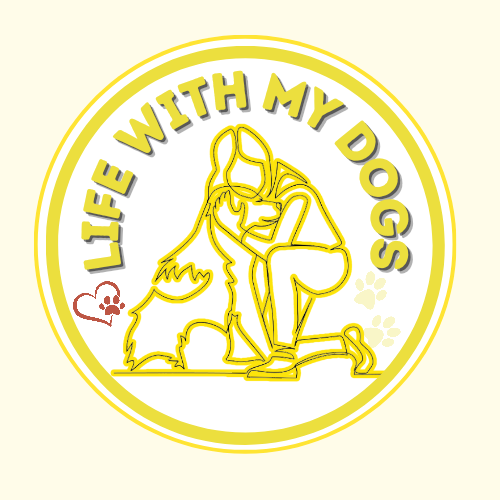LifeWithMyDogs is supported by our audience. When you purchase through one of our links, we may earn a small affiliate commission. As an Amazon Associate I earn from qualifying purchases. Your cost is not affected.
**********
Understanding the FDA’s involvement in pet food recalls is essential for responsible pet ownership. From investigating reports of illness to coordinating recalls with manufacturers, the FDA serves as a watchdog for pet food safety. The safety of your pet’s food is just as important as the food you put on your table. With countless pet food brands available, it can be overwhelming to trust that what you’re feeding your furry friend meets the highest quality and safety standards.
When issues arise, such as contamination or mislabeled ingredients, the U.S. Food and Drug Administration (FDA) plays a critical role in protecting pets by initiating recalls and enforcing strict regulations.
How the FDA Safeguards Your Pet’s Food: A Closer Look at Recalls and Safety
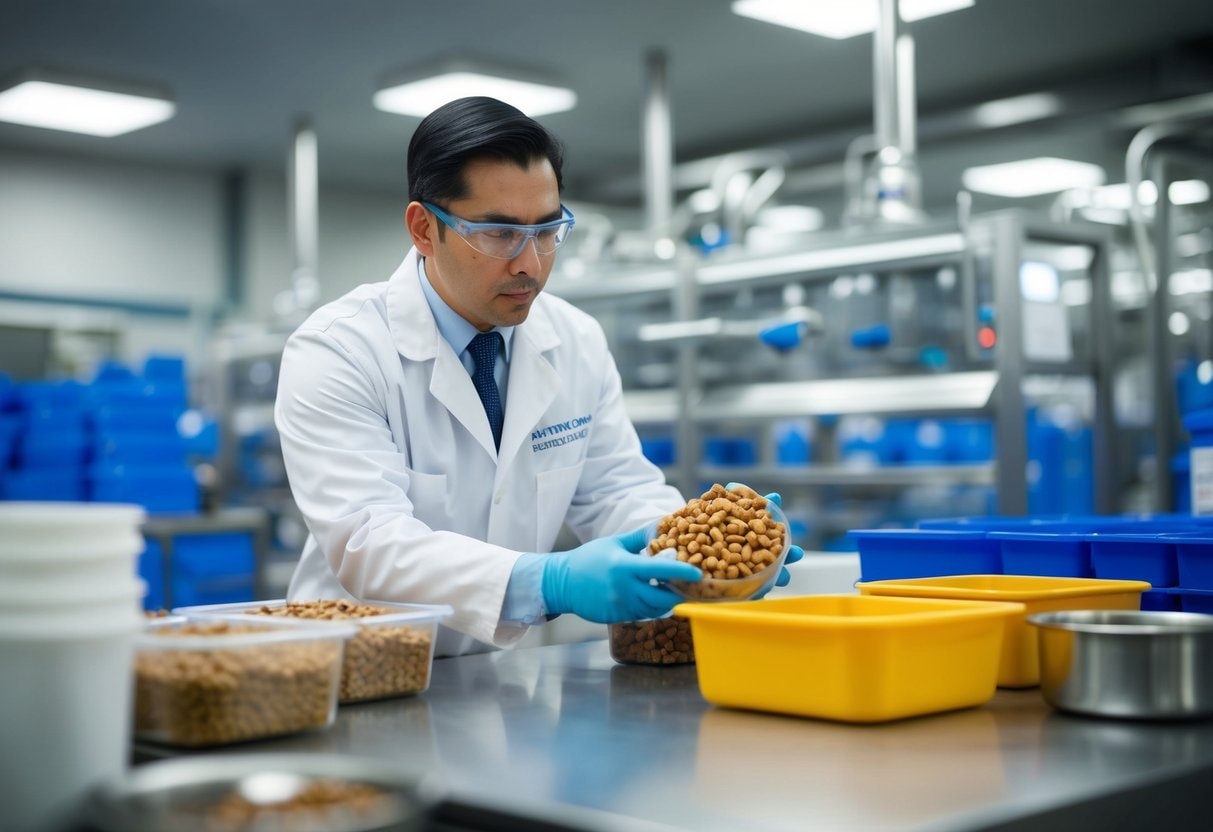
The FDA plays a key part in keeping pet food safe. They set rules for what can go in pet food and check to ensure companies follow them. The FDA ensures pet food ingredients are safe and serve a purpose. They set standards for what can be in your pet’s food.
This includes rules about nutrition, additives, and labeling. You can trust that the FDA watches out for your pet’s health. They require pet food to be clean and free from harmful stuff. Labels must list all ingredients and show feeding directions. The FDA also sets limits on things like pesticides in pet food. They ensure the food has the nutrients your pet needs to stay healthy.
Key Highlights
- The FDA sets and enforces strict regulations for pet food, covering nutrition, additives, and labeling to ensure safe and nutritious products for pets.
- The FDA conducts factory inspections, monitors production processes, and initiates recalls when contamination, mislabeling, or unsafe ingredients are identified.
- Pet food recalls often stem from contamination (e.g., Salmonella, Listeria), nutritional deficiencies, or physical hazards like foreign objects, posing risks to pet health.
- The FDA partners with the CDC, state agencies, and manufacturers to address pet food safety issues, share recall information, and safeguard public and pet health.
- Pet owners play a vital role in maintaining their furry friends’ safety alongside FDA oversight by staying updated on recalls, reading labels, and reporting concerns.
Diving Deeper
Let’s take a closer look at the FDA.
Inspection and Compliance Activities
To keep pet food safe, the FDA does more than just make rules—they also play a vital role in managing pet food recalls. They check to see if companies follow safety guidelines, helping to protect your furry friends from unsafe food. The FDA visits pet food factories to ensure they’re clean and safe, keeping an eye on how food is made and stored. If issues are found, they take action, including initiating pet food recalls to address the problems and safeguard pets’ health.
You can help, too. If you think pet food made your pet sick, tell the FDA. They look into these reports to spot and stop problems fast. The FDA also checks pet food that comes from other countries. This helps ensure all pet food sold in the U.S. is safe, no matter where it’s from.
Common Reasons for Pet Food Recalls
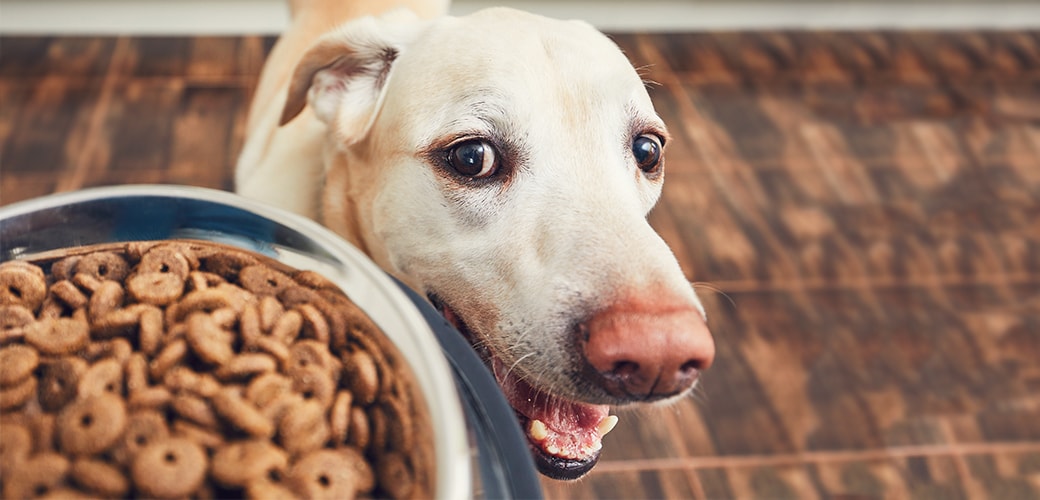
Pet food recalls happen for several key reasons. These issues can put your pet’s health at risk. Let’s look at the main causes of recalls and what you need to know to keep your furry friends safe.
Contaminants and Bacteria
Harmful bacteria are a big worry in pet food. Salmonella is one of the most common culprits. It can make both pets and humans sick. Listeria is another dangerous bacteria to watch out for. It can cause serious illness in pets and people.
Toxins like aflatoxin can also sneak into pet food. These come from mold and can be very harmful to your pet. Keep an eye out for recall notices about these contaminants. If you see one for your pet’s food, stop using it immediately.
Mislabeling and Nutritional Inadequacy
Sometimes, the problem is on the label. Pet food might not have the right ingredients listed. This can be risky if your pet has allergies. They might eat something they shouldn’t. Other times, the food might not have enough nutrients. Your pet needs the right balance to stay healthy.
Always check that your pet’s food matches what’s on the label.
Product Defects and Contamination
Pet food can also cause physical problems. Foreign objects might get mixed in during production. This could include:
- Plastic pieces.
- Metal shavings.
- Glass fragments.
These can hurt your pet’s mouth or digestive system. Sometimes, the food might spoil or go bad before its expiration date. This can make your pet sick.
Quality control issues during manufacturing can lead to these problems. That’s why the FDA keeps a close eye on pet food production. If you notice anything odd about your pet’s food, don’t use it. Report it to the company and the FDA right away.
Did You Hear?
The FDA posts recall notices on its website. They also share the information through press releases and social media. For serious issues, they might use TV or radio announcements. The goal is to reach as many pet owners as possible.
Impact of Recalls on Pet Health
Pet food recalls can seriously affect your furry friend’s health. These recalls often happen due to harmful bacteria or incorrect ingredients in pet food products.
Immediate Risks and Long-term Effects
When your pet eats recalled food, they might get sick right away. Salmonella and Listeria are common causes of pet food recalls. These bacteria can make your pet very ill. Signs of sickness may include:
- Vomiting.
- Diarrhea.
- Fever.
- Loss of appetite.
If you notice these symptoms, take your pet to the vet quickly. Long-term effects can be serious, too. Your pet might have ongoing digestive issues or other health problems. In rare cases, eating bad pet food can even lead to death.
Hill’s Pet Nutrition Case Study
In 2019, Hill’s Pet Nutrition recalled some of their canned dog food. The food had too much vitamin D. This case shows how recalls can affect pet health. Too much vitamin D can cause:
- Kidney failure.
- Weight loss.
- Excessive thirst.
Many dogs got sick from this food. Some even died. This recall taught pet owners to be extra careful about what they feed their pets. Always check for pet food recalls. Your quick action can keep your pet safe and healthy.
Pet Food Recalls: Types of Pet Food Subject to Recall

The FDA closely monitors different kinds of pet food to ensure your furry friends stay healthy. Let’s look at the main types that sometimes need to be recalled.
Dry and Wet Pet Food
Your pet’s kibble or canned food can sometimes have problems. Dog food recalls happen when things go wrong. Companies might find harmful bacteria or use the wrong ingredients.
Dry food can get moldy if not stored correctly. Wet food cans might have tiny metal bits from the packaging process. These issues can make your pet sick. Watch out for news about recalls. The FDA will tell you if your pet’s favorite brand has trouble.
Raw Pet Food Risks
Raw pet food can be tricky. It’s not cooked, so it might have more germs. Your pet could get sick from these germs. The FDA is extra careful with raw pet food. They check for things like:
- Salmonella.
- Listeria.
- E. coli.
These bad bugs can make your pet very ill. They can even make you sick if you touch the food and don’t wash your hands. Always be careful with raw pet food. Watch for any pet food recalls to keep your furry friend safe.
How Pet Owners Can Stay Informed
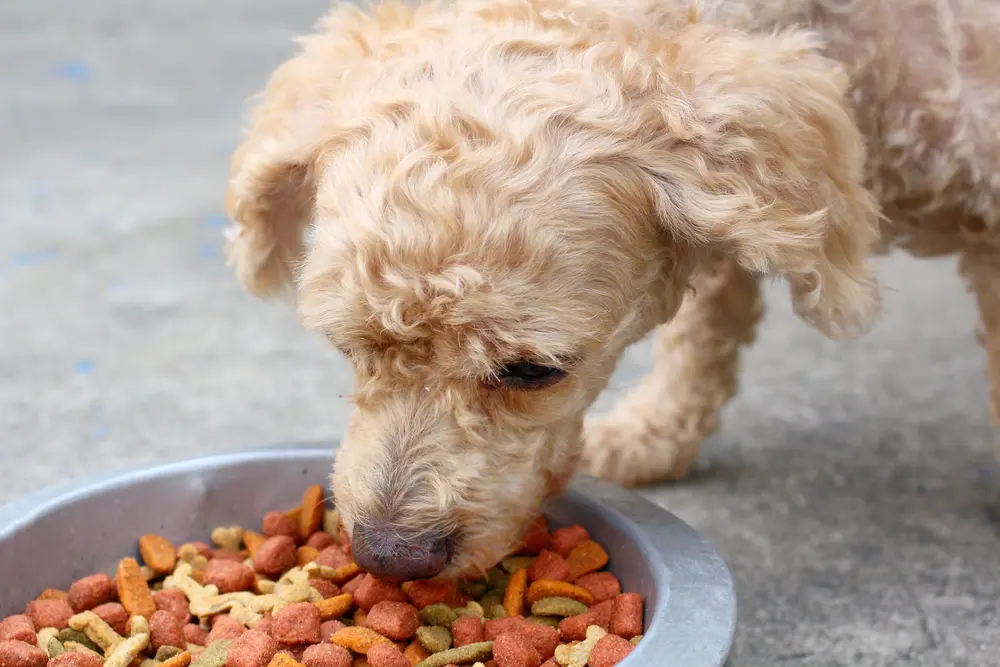
Staying informed about pet food recalls is crucial for your furry friend’s health and safety. You can take simple steps to keep up-to-date and make smart choices about what you feed your pet.
Understanding Recall Information
The FDA shares pet food recall notices on its website. You can check this regularly to stay informed. Sign up for email alerts to get updates sent straight to your inbox. Look for key details in recall notices:
- Brand and product name.
- Lot numbers.
- Reason for recall.
- What do you do if you have the product?
Keep your pet’s food packaging. The lot number on the package helps you check if your pet’s food is part of a recall.
Making Informed Decisions
Read pet food labels carefully. Look for clear ingredient lists and nutritional info. This helps you pick the best food for your pet. Ask your vet about trusted pet food brands. They can guide you to safe, healthy options.
Consider buying from companies with good safety records. Look for brands that do regular quality checks. Don’t panic if you see a recall. Most are precautionary.
If your pet’s food is recalled, stop feeding it right away. Follow the recall instructions for returning or disposing of the food. Keep an eye on your pet’s health. If you notice any odd symptoms after eating, talk to your vet.
Collaboration with Other Agencies
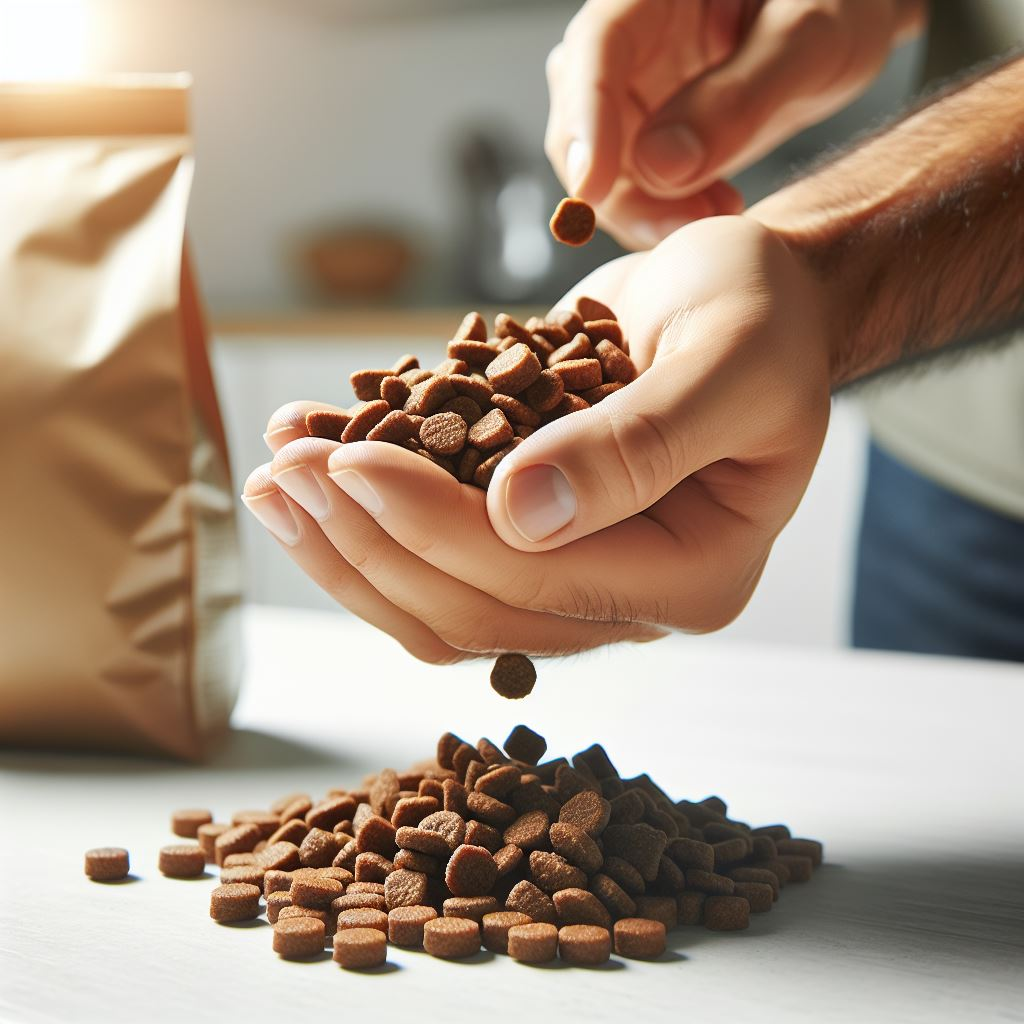
The FDA works closely with other agencies to keep pet food safe. This teamwork helps catch problems quickly and protect pets and their owners.
Coordination with CDC and Other Entities
Regarding pet food safety, the FDA doesn’t work alone. They collaborate with the CDC and other groups to keep your furry friends healthy. The FDA and CDC share info about pet food issues. This helps them spot trends and react fast. If many pets get sick from food, they work together to discover why.
State agencies also play a big role. They help with pet food inspections and share what they find with the FDA. This teamwork makes sure problems are caught early. When a recall happens, the FDA works with other groups to spread the word. They want to ensure you know about any unsafe pet food immediately.
Here’s an additional informational video about pet food recalls.
By: Veterinary Secrets
Protecting Pets Through Vigilance: The FDA’s Commitment to Safety
In conclusion, the FDA’s role in pet food recalls is crucial in ensuring the safety and health of your furry companions. The FDA safeguards pets from potentially harmful products through its rigorous regulations, inspections, and quick responses to reports of contamination or mislabeling. Its collaboration with other agencies further strengthens its ability to monitor and address risks effectively.
As a pet owner, staying informed about recalls and understanding the FDA’s processes can empower you to make safer pet choices. By checking recall notices, reading labels carefully, and reporting any concerns, you become active in maintaining your pet’s well-being. Together with the FDA’s oversight, these efforts ensure your beloved pets receive the high-quality care and nutrition they deserve.
Frequently Asked Questions
The FDA plays a crucial role in pet food safety and recalls. Pet owners should understand how recalls work and what actions to take to protect their furry friends.
What Steps Does the FDA Take During a Pet Food Recall?
The FDA oversees the recall process to ensure public safety. When a problem is found, they work with the company to remove the product from shelves. The FDA also checks that the company informs customers about the recall. They may inspect manufacturing facilities and test samples. The goal is to find the source of the problem and prevent it from happening again.
How Can I Stay Informed About the Latest FDA Pet Food Recalls?
You can check the FDA website for up-to-date recall information. Many pet food companies also post recalls on their websites and social media. Signing up for FDA email alerts is a good idea. You’ll get notifications about new recalls right away.
What is the FDA's Role in Regulating the Safety of Pet Food?
Ensuring the safety of pet food, the FDA enforces strict regulations on ingredients, manufacturing, and packaging. Regular inspections of factories and product testing are conducted to maintain quality. In cases of safety concerns, the FDA initiates recalls or mandates corrective actions to protect pets.
What Should Pet Owners Do When the FDA announces a Pet Food Recall?
First, stop feeding the recalled food to your pet right away. Check the label to see if your product is part of the recall. Take the food back to where you bought it. You can usually get a refund or exchange. Watch your pet for any signs of illness, and call your vet if you’re worried.
How Does the FDA Work With Manufacturers During a Pet Food Recall Process?
The FDA guides companies through the recall steps. They make sure the company tells customers and stores about the problem. They check that all recalled products are removed from shelves. The FDA also reviews the company’s plan to fix the issue and prevent future problems.
Connect with Us on Social Media!
Become part of our dog-loving community! Share your passion with fellow enthusiasts, explore exclusive content, and discover insightful product reviews by following us online.
- Facebook: Life With My Dogs
- Instagram: @LifeWithMyDogs2
- Pinterest: Life With My Dogs
- YouTube: Life With My Dogs
